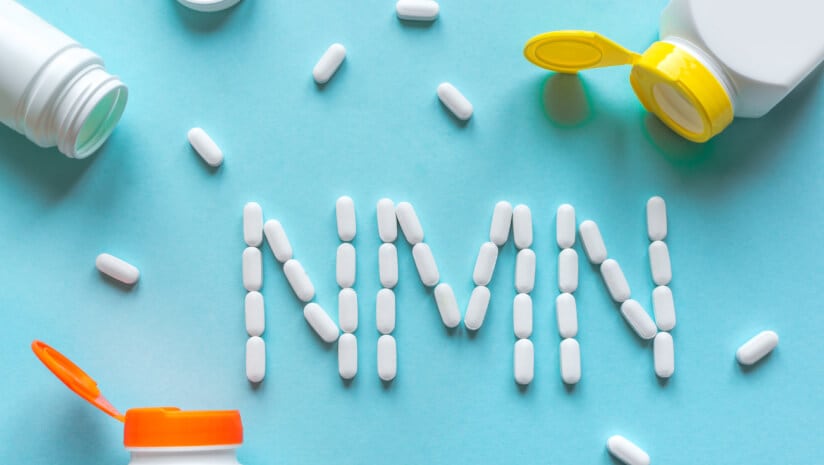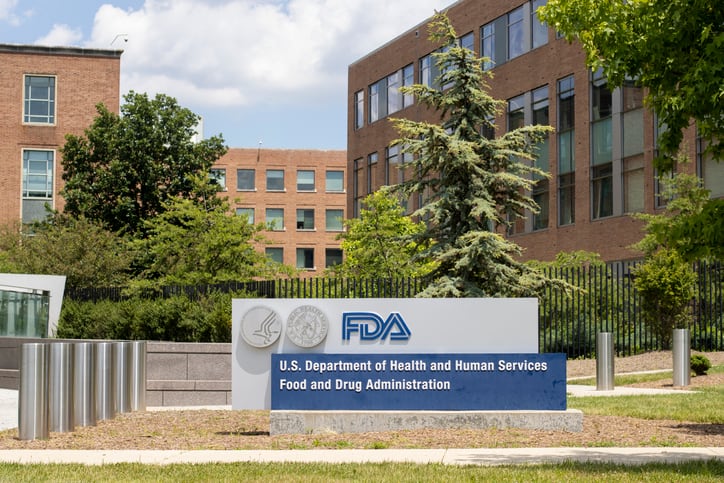In response to a Citizen Petition from the Natural Products Association (NPA) and the Alliance for Natural Health USA (ANH) on the status of NMN, the U.S. Food and Drug Administration (FDA) recently stated that it had revised its interpretation of the race-to-market clause (that an ingredient that is first a drug cannot then become a dietary ingredient).
The news was welcomed by NPA and ANH-USA as a victory for NMN, with Daniel Fabricant, PhD, NPA president and CEO calling on e-commerce platforms to immediately restore NMN products to the market. Amazon removed NMN dietary supplements from its virtual shelves at the start of 2023, but several different NMN dietary supplements are now available on Amazon.
‘Substantial clinical investigations’
“I think we’re all wondering how FDA’s response affects other ingredients,” Rend Al-Mondhiry, partner at Amin Wasserman Gurnani, told NutraIngredients. “Stepping back and considering this issue more broadly, FDA’s response is fascinating, if not mind-boggling. It’s rare that we see FDA change its position, and obviously this is a win for companies selling NMN.
“However, the agency’s interpretation of ‘substantial clinical investigations,’ seems to broaden application of the drug preclusion clause, and transparency around when an IND [investigational new drug] was authorized will continue to be an issue. So, all in all, it’s a mixed bag in terms of what FDA’s response means moving forward,” she said.
In a press release on Sept. 29, the Council for Responsible Nutrition (CRN) said that the FDA response appears to broaden ‘substantial clinical investigations’ by stating that early-phase or limited studies can confer drug companies with protection if the agency deems them qualitatively important for drug development.
The agency’s wording around ‘substantial’ is “absolutely wrong”, said Scott Bass, partner at Sidley Austin, LLP and one of the architects of the Dietary Supplement Health and Education Act (DSHEA). While Bass said he was “very impressed with FDA’s letter, all 26 pages, single spaced,” calling it “a major shift in their approach to DSHEA issues”, he said that the agency is “100% wrong” on the use of the word ‘substantial’.
According to the statute (201 (ff)(3)(B)(ii)), dietary supplements do not include “an article authorized for investigation as a new drug, antibiotic, or biological for which substantial clinical investigations have been instituted and for which the existence of such investigations has been made public.”
In its response letter, FDA stated that “substantial clinical investigations” are not just about large studies but also studies that are important and meaningful for developing new drugs. The Congressional sponsors of DSHEA were clear that single-patient studies or compassionate use cases do not count as “substantial clinical investigations,” stated FDA, but “some types of early studies may be considered ‘substantial’ due to their impact and ability to directly inform drug development by providing critical information that otherwise could not be obtained.”
“Substantial does not mean qualitative,” said Bass. “100% wrong. The reason that word [substantial] was stuck into the original Waxman draft [of 201 (ff) 3] by us was to say it can’t be a single person study. That’s 100% the reason. There is no doubt whatsoever about that thing.”
Loren Israelsen, founder and president of the United Natural Products Alliance (UNPA) and a fellow architect of DSHEA, agreed. “This is best read as protecting the incentives for new drug development. A one-person investigation that happens to be a potential blockbuster could be incredibly important in terms of qualitative gain of knowledge,” he said. “So, FDA seems to be protecting the incentives if they decide an N of one for a very interesting drug candidate gets the benefit of the doubt, and that would exclude the dietary ingredient. I think they [FDA] are reading that wrong, and we should take that up with them.”
The start date
There is also consternation in the dietary supplements industry around the date from which an IND applies. The FDA response to the NPA-ANH petition stated: “The relevant date for purposes of the race-to-market clause […] is the date the article in question was authorized for investigation as a new drug, antibiotic or biological. The relevant date is not the date that substantial clinical investigations were instituted or the date that the existence of such investigations was made public.”
Referring to ‘substantial’ and ‘public’ in the 201 (ff)(3)(B)(ii), Bass said, “I wrote these two terms. I mean, I personally wrote them. I remember exactly when we put in the ‘substantial’ and ‘public’.”
Bass said that the entire point of inserting ‘public’ into the statute was to avoid somebody claiming that something wasn’t a supplement because somebody had filed an IND that nobody knew about.
“So, of course it’s the public date that counts,” he said.
Israelsen commented, “What we know now is that we’ll never know when an IND is authorized because FDA can’t tell us. I don’t think anybody in the room [in 1993-94] realized that when this was being negotiated. Had we known, I can’t imagine that we would have chosen that approach. But why in God’s name couldn’t FDA have said decades ago, ‘Well, part of the problem, folks, in this race to market is we can’t tell you the IND date.”
Israelsen said that, ironically, there’s is finally clarity on how big a black box this IND situation really is.
“It is regrettable that we couldn’t have had this conversation a very long time ago for the benefit of all sides,” he said. “And I do think going forward we are at a point of convergence where a lot of interesting chemistry is now being looked at by pharma, supplements and food, and that we’re in a bit of a bind here.”
Marketing… lawful or not
Another bone of contention in the response from FDA is around the agency’s reversal of its position that a dietary supplement or food must have been lawfully marketed before the approval of a new drug. FDA stated it would no longer evaluate whether the dietary supplement or food was lawfully marketed when determining its status under the race-to-market framework. However, the FDA stated that this marketing (whether legal or not) must have occurred in the United States.
Rob Fried, CEO of Niagen Bioscience, which markets Niagen NR (nicotinamide riboside, another form of vitamin B3 and booster of NAD+), said he expects the FDA’s positions to be challenged.
“We find the decision strange,” he said. “FDA is indicating that an ingredient no longer needs to be ‘lawfully’ marketed. That’s a divergence from what many companies have understood. It is difficult to believe that Congress would have intended for an ingredient to be illegally marketed.”
Sidley’s Bass took a different perspective on the ‘lawful marketing’ interpretation by FDA, noting that prior to DSHEA there was no such thing as a dietary supplement, so it couldn’t have been a lawful requirement.
“How do you then determine what was lawful in 1968 or 1980 under a law that kept changing, and especially for 14 years when general counsel of FDA invented the unsafe food additive theory for supplements? FDA threw that in to block supplements.” he said.” And what’s nice here is that FDA is not doing that, and I think it’s probably a reflection of the current leadership of dietary supplement people [at FDA], but it’s also an indication that the Chief Counsel’s office is now not following what I think was an unfortunate path for 20 something years.”
Regarding the marketing “in the United States”, Bass said that FDA is “100% correct. It would make no sense otherwise.
“If you’re talking about an approved drug or biologic IND, that’s all U.S. regulation,” he said. “They’re not talking about European or Asian INDs, and it would make no sense that they were because there’s no jurisdiction of FDA, and FDA doesn’t have ownership of the IND information, so it’s totally logical.”
A desire for more clarity and visibility
So where does this leave us? All the experts interviewed for this article agreed that the FDA response does leave many questions unanswered.
“Unfortunately, I don’t know if it’s going to make it any easier for companies to make decisions on how to proceed,” Israelsen said. “And what everybody was hoping for was to get the decision tree to be a little more clear and visible so we can make sensible decisions.
“I thought the way the questions were framed out by NPA and ANH, they did a really good job of being very precise about trying to elicit answers to questions that we’ve all had,” he added. “And I think FDA should be credited with trying to be equally precise in answering those questions, but I do think this race-to-market is going to end up in court.”
AHPA’s stance
Graham Rigby, president of AHPA, said his organization appreciates the clarity provided regarding NMN dietary supplements as well as that FDA has retreated from certain earlier statements that purported to expand the scope of the prior drug exclusion provision.
“While this clarity is welcome, AHPA has concerns about other aspects of the responses that do not appear to reflect congressional intent regarding the prior drug exclusion provision,” he said. “In addition, as FDA has now resolved other stakeholders' citizen petitions on these issues, which may appropriately result in litigation, AHPA looks forward to the agency's resolution of its longstanding citizen petition regarding modernizing 21 C.F.R. 101.4(h) to formally adopt Herbs of Commerce (3rd Edition).”





